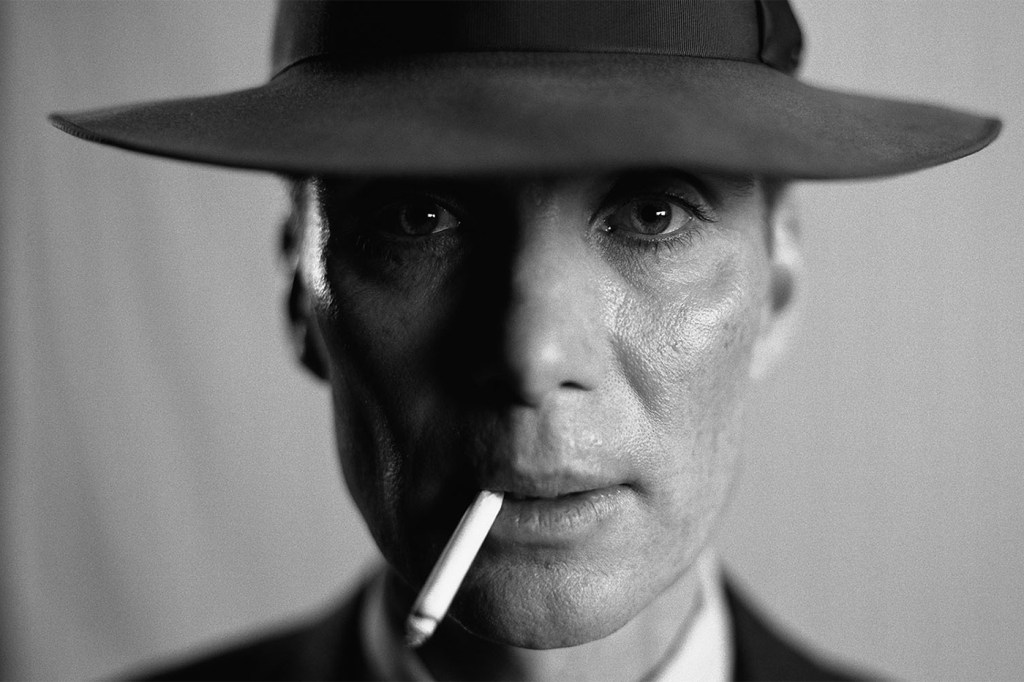Who is Oppenheimer and why is Christopher Nolan, one of the biggest directors in Hollywood, making a movie about him?

J. Robert Oppenheimer.
Even if that name doesn’t ring a bell, you almost certainly know who he is. Known as the father of the atomic bomb, Oppenheimer is one of the most important figures of the 20th century––and now he’s the protagonist of one of the year’s biggest movies from Christopher Nolan, one of the biggest directors working today.
Considering Nolan’s filmography––dark superhero epics like “The Dark Knight,” cerebral, twist-filled blockbusters like “Inception”––it might seem odd that he’s tackling a film about Oppenheimer. But the life, work and legacy of the man are more than deserving of a jump to the big screen, says Gretchen Heefner, an associate professor of history at Northeastern University.
His leadership in the Manhattan Project, the top secret operation to develop the atomic bomb before the Nazis, that culminated in the creation of a world-altering weapon is notable enough. His post-World War II disgust in what he had created and fierce attempt to regulate nuclear weapons even more so. But according to Heefner, he was also just “an interesting character” who seems almost tailor-made for the movies.
“He was this really complicated, interesting figure,” Heefner says. “He flirted with communism for a while. He was known to be volatile, difficult to work with yet apparently a good manager when he was at [the Manhattan Project’s] Los Alamos [lab].”
Based on Kai Bird and Martin Sherwin’s Pulitzer Prize-winning biography “American Prometheus,” “Oppenheimer,” due to hit theaters on July 21, stars Cillian Murphy in the titular role and, based on trailers, appears to follow his early days, time on the Manhattan Project and the post-war period that destroyed his career.

Oppenheimer quickly acquired a reputation as a brilliant theoretical physicist who was pretty clumsy in a lab. He was also incredibly driven––sometimes to the point of obsession––and, as a result, prolific. Oppenheimer is mostly known for his contributions to theoretical astronomy, astrophysics, quantum field theory and, of course, nuclear physics
But Oppenheimer was also known as much for his personality as his publications.
Tall, lanky and constantly smoking a cigarette, Oppenheimer was in many ways a renaissance man. He could learn other languages incredibly fast and was often as knowledgeable and passionate about philosophy and art as he was physics.
He also was not afraid to show how knowledgeable he was. As a university student, he would dominate class discussions to the point that his classmates threatened to boycott their class, according to Bird and Sherwin. During his university years, Oppenheimer also struggled with depression that manifested in some violent behavior toward some of his closest friends.
Politically, Oppenheimer was a supporter of progressive causes and left-wing politics throughout his life. Although he never formally joined the Communist Party, in the 1930s he was an active supporter, financially and philosophically, of reforms and ideas that aligned with the party. During the Red Scare of the ’40s and ’50s, this would prove his undoing.
With a character like that at the center of his film, the focus of Nolan’s “Oppenheimer” is largely what has come to define the physicist’s legacy––the creation of the first atomic bomb––and his response to that legacy.
In October 1941, two months before the U.S. entered World War II, President Franklin D. Roosevelt officially signed off on the development of an atomic bomb. Lt. Gen. Leslie Groves (played by Matt Damon in the film) was eventually made director of the Manhattan Project, the name for the top secret project for developing the atomic bomb.
Groves chose Oppenheimer to lead the project’s secret weapons lab in New Mexico. Oppenheimer assembled a team of top tier physicists, some from the U.S. and others who had fled from Europe and Nazi Germany. For those involved in the project, there was a sense of urgency unlike anything else.
“They were like, ‘If Hitler gets it, it’s all over,’” Heefner says. “There was a sense of if your enemy has it, they’ll use it and then it’s over. Early on that was the preoccupation. It’s the ultimate weapon, so if you have it, you can threaten anything.”
In 1945, the hard work of countless Los Alamos Laboratory scientists culminated in the first nuclear explosion at a New Mexico site, codenamed “Trinity.” The Trinity nuclear test is one of the most important and iconic moments of the 20th century––so important that Nolan was adamant he needed to recreate the explosion practically, without computer generated imagery.
“We knew the world would not be the same,” Oppenheimer said of that moment in a 1965 televised interview.
He was right. The bombing of Hiroshima and Nagasaki in 1945 helped end the war but also ushered in a nuclear arms race and Cold War.
He was capable of remorse and reflection. He understood that his actions had consequences and was working for a greater good more than ego.
Gretchen Heefner, an associate professor of history at Northeastern University
In the same television interview, Oppenheimer says in the moment the Trinity test went off he was reminded of a quote from the Bhagavad Gita: “Now I am become Death, the destroyer of worlds.” It’s a quote that came to define his relationship with his creation for the rest of his life.
In response to the U.S. dropping its second bomb on Nagasaki, Oppenheimer hand-delivered a letter expressing his disgust to Secretary of War Henry L. Stimson. For the rest of his life, the father of the atomic bomb would be one of the fiercest advocates for its regulation.
“Oppenheimer’s post-war life is that he was in part horrified by what he had done,” Heefner says. “He was still involved in the U.S. military and the Atomic Energy Commission, which was the organization set up to manage the bomb and manage nuclear materials. … But he also was an advocate for international control of atomic energy, which was not as pie in the sky as it sounds.”
Oppenheimer hoped an international arms regulation could avert what he saw as a potential arms race. He was right, in a sense. The Soviet Union tested its first atomic bomb in 1949, prompting the U.S. to start developing the more powerful hydrogen bomb, or “super bomb,” against the recommendations of Oppenheimer and members of the AEC.
Against his wishes, Oppenheimer’s creation completely altered post-war life and politics. The ability for global powers to develop tools of mass destruction changed geopolitics forever and created a sense of paranoia and fear that pervaded culture for decades.
“It was clearly destabilizing in the fact that it creates a certain hierarchy of power,” Heefner says. “Who has it? Who has the umbrella that lets you stay secure? Who says, ‘We’ll share it with you?’ It created strange alliances.”
But Heefner says Oppenheimer’s post-war efforts were not totally in vain––nuclear weapons are “highly regulated”––but they did cost him almost everything.
“Oppenheimer was opposed to it, and because of that he became a political football,” Heefner says. “He also was a contentious personality, so he didn’t do any of this smoothly. He was charged with being disloyal, possibly being a communist or Soviet sympathizer, which in this time period was incredibly damaging.”
A brilliant mind on a meteoric rise, a scientific breakthrough with world-shattering implications and a fall from grace due to convictions that flew in the face of the political powers that be: Oppenheimer’s life is full of enough material for several movies. Heefner can only speculate about Nolan’s interest in this story, but she says even decades later Oppenheimer, flaws and all, is a reminder of what scientists and forward thinkers can do for––and to––the world.
“Oppenheimer was a scientist, a big thinker and deeply compassionate,” she adds. “He was capable of remorse and reflection. He understood that his actions had consequences and was working for a greater good more than ego.”
Cody Mello-Klein is a Northeastern Global News reporter. Email him at c.mello-klein@northeastern.edu. Follow him on Twitter @Proelectioneer.






